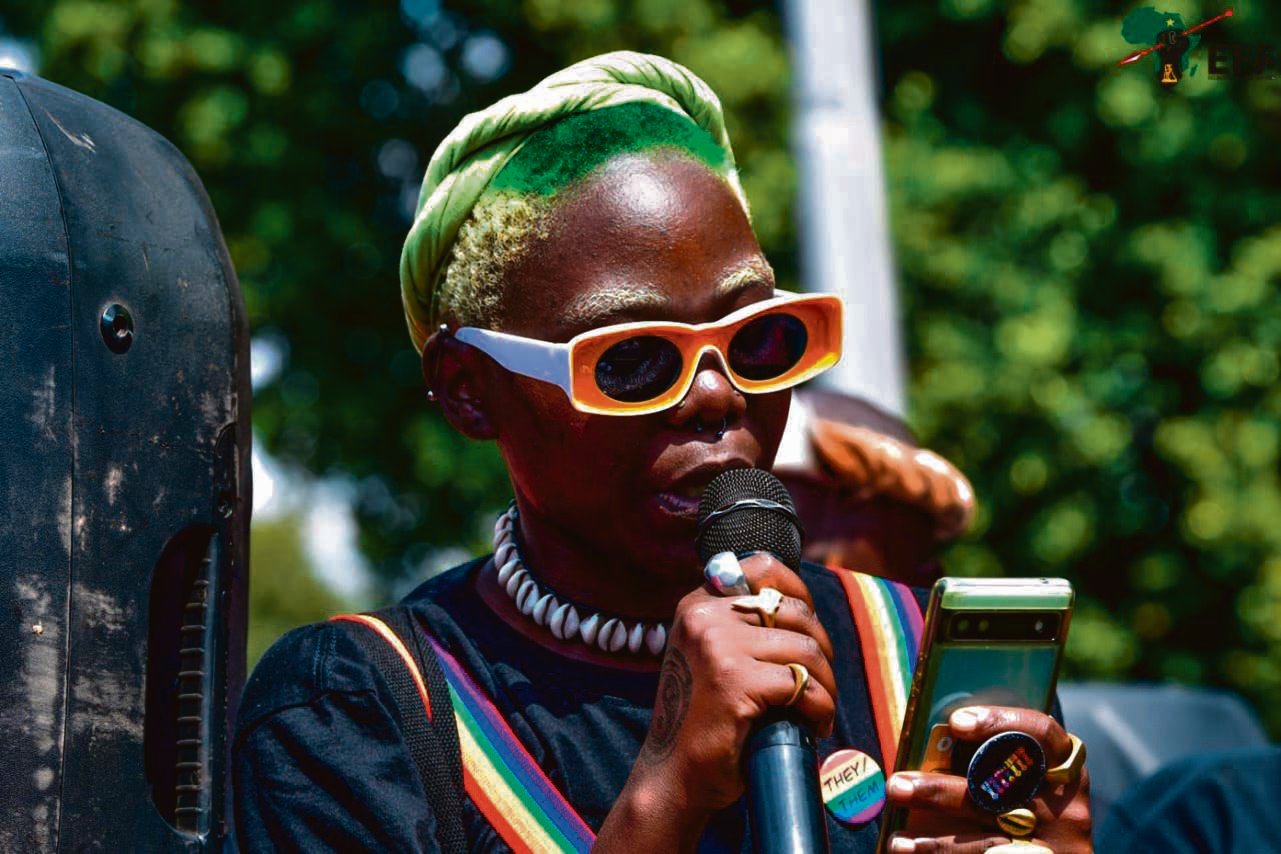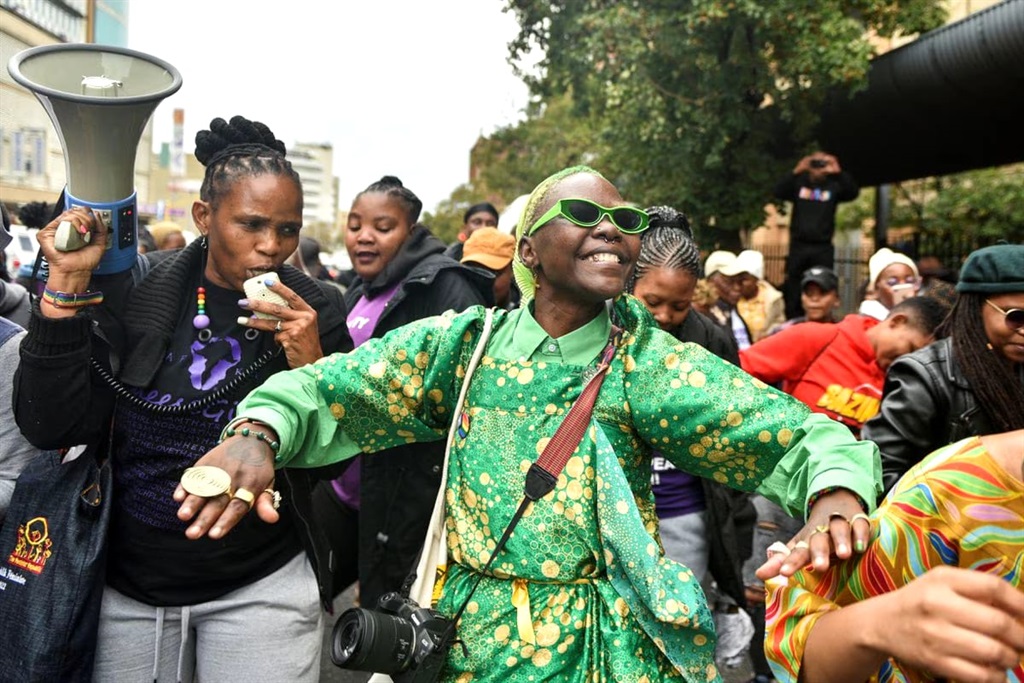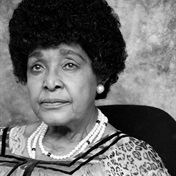
It never rains but it pours, and Ugandan members of the LGBTIQ+ community are going through a storm right now.
On March 21, Uganda passed a deeply bigoted anti-gay bill that sought to further criminalise and dehumanise LGBTIQ+ people in the eyes of the law.
Although same-sex relations were already illegal in the country, the new bill states that any person found guilty of same-sex relations could face life imprisonment.
According to a Reuters report, the bill targets homosexual activities by including a ban on “promoting and abetting homosexuality” as well as “conspiracy to engage in homosexuality”.
Added to this, the bill includes the death penalty, which can be invoked in cases that involve “aggravated homosexuality”, which constitutes cases where same-sex incest is committed or where homosexual acts are committed without consent or under duress, as well as homosexual acts towards children and people with mental or physical disabilities.
Serial homosexual offenders could also face the death penalty.
The bill stipulate:
There are, however individuals and grassroots movements seeking to oppose this bill and secure the rights of the Ugandan LGBTIQ+ community.
One such movement was started by nonbinary photojournalist, artist and activist DeLovie “Papa De” Kwagala, who leads the HashtagWhatNext formation.
Our interview begins with a rather sombre Kwagala contemplating the outcome of a HashtagWhatNext fundraiser that took place on April 22.
They said:
We caught up on what they had been up to since we last spoke, which was in 2020. It became obvious that Kwagala’s days were filled with the work they’ve been doing to help Uganda’s LGBTIQ+ community. They spoke of a recent visit to their home country, which they expected to be their last for a while.
“I’ve just come back from Uganda ... [about] a month ago. After staying there for close to a month, on my way back I found out that, if I were to return to my home country, I would be arrested at the airport because of the activism I’ve been doing and the traction this movement has got.”
Kwagala remembered being a rather unusual and isolated child, fed up with the lies of the government and their immediate community.
For many queer children, their queerness stands as the focal point of many of the interactions they have from early on, however, Kwagala discovered their queerness much later in life – after a difficult childhood.
“There are so many things I don’t remember about my childhood. To be honest, there’s a lot of trauma there. I lived with my mother in the city for a while. I remember being a quiet kid who always had to excel. I needed the scholarships and bursaries, otherwise we wouldn’t be able to afford school.
“When I was seven, I ended up at my father’s home in the village, with the epitome of an evil stepmother, who treated me like a sister-wife. She would tell me that, if I wanted to be a good child, I needed to sleep with my father.
They laughed:
And then the words of their pastors and elders began sanding away at their authentic identity. Kwagala struggled to reconcile their queerness with the teachings of their church and elders, and their pastor told them that being queer was not only a sin, but also that engaging in homosexual activities was akin to eating human faeces – a disgusting trait that would bring HIV into the home.
From that point on, like many young teens in Uganda, Kwagala would tirelessly attempt to rid themselves of the “queer” label and to pray the gay away.“I tried to give myself conversion therapy, really. I would sleep in the church and pray for hours.
WATCH | Gay rights are human rights. EFF protests Ugandan anti-homosexuality bill
Queerness wasn’t just wrong; it was disgusting because of the things the adults around me told me. I started wearing long skirts and dresses, and becoming more effeminate to sway myself away from my true identity.
“I know what Ugandans are going through, I’ve gone through it myself. There’s so much guilt and shame that follows these innocent encounters. It’s dark, it’s lonely and there is no escape unless we fight for it.”
And fight for an escape is what the HashtagWhatNext movement seeks to do. After Kwagala’s last visit to their mother’s village, where they were seen as the village’s shame, they began to share their frustrations on social media with the hashtag HashtagWhatNext, which led to the movement.
Their advocacy attracted sponsors, who donated food, shelter and money as the situation in Uganda became more hostile.
The HashtagWhatNext movement has sparked a revolution, with more than £30 000 (R682 500) raised to aid those who are stuck in Uganda without refuge. Most of the funds go towards paying for visas to get the individuals out of the country, and the rest is channelled towards rent, medication and necessities such as food and toiletries in their homes of exile.
READ: Anti-LGBTIQ+ laws a threat to tourism
Kwagala’s work strives for a delicate balance wherein advocacy and protest are carried out in such a way that the lives of those queer Ugandans who are still in the country are not endangered.
They encourage other African individuals, organisations and governments to unite in fighting for not only queer rights, but for human rights as a whole. Kwagala hopes to one day build a HashtagWhatNext centre, where they can offer displaced young queer people a refuge and the tools they need to pursue their dreams.




 Publications
Publications
 Partners
Partners










